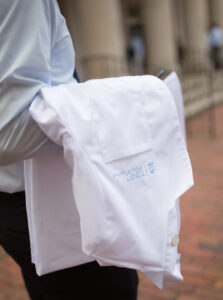Anatomical Gifts Program
Body Donation Program
The School of Medicine’s education program has an ongoing need for whole body donations to support our medical, dental and other health professional training programs. Your gift will ensure the training in human anatomy of our State’s future health care leaders.

FAQs
- Information regarding the Body Donation Program
- Forms for Bequeathing Body by Individual (Two individuals must witness the Certificate for Donation and Disposition)
- Forms for Bequeating Body by Next-of-Kin (Two individuals must witness the Certificate for Donation and Disposition)
Make a copy of the completed documents for your files and send the original to:
UNC School of Medicine Body Donation Program
6316 Roper Hall, Campus Box 7520
150 Medical Drive
Chapel Hill, NC 27599-7520
A confirmation notice will be sent to you when we receive your completed forms. We suggest that the forms and our confirmation notice be kept in a secure place and that your next-of-kin and/or executor be informed of your intentions.
If you have additional questions and would like to speak to one of our team members, please contact the Anatomical Gifts Program by calling 919-966-1134.
Students and faculty members never lose sight of the fact that each donor wanted to make a contribution to medical education. Each donor is treated with dignity and respect. The laboratories are restricted and only accessible to medical, dental, and allied health students, faculty, and staff associated with the anatomy program.